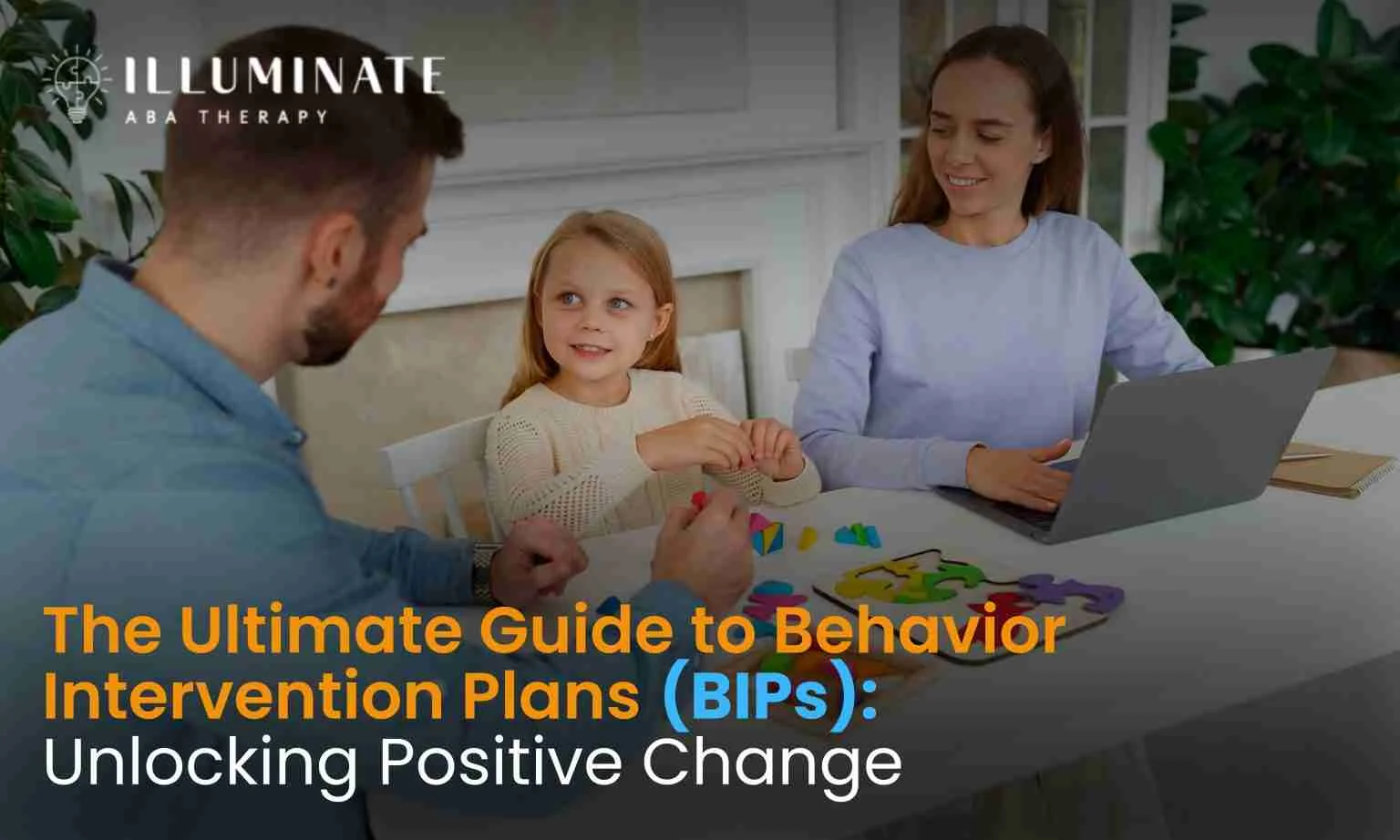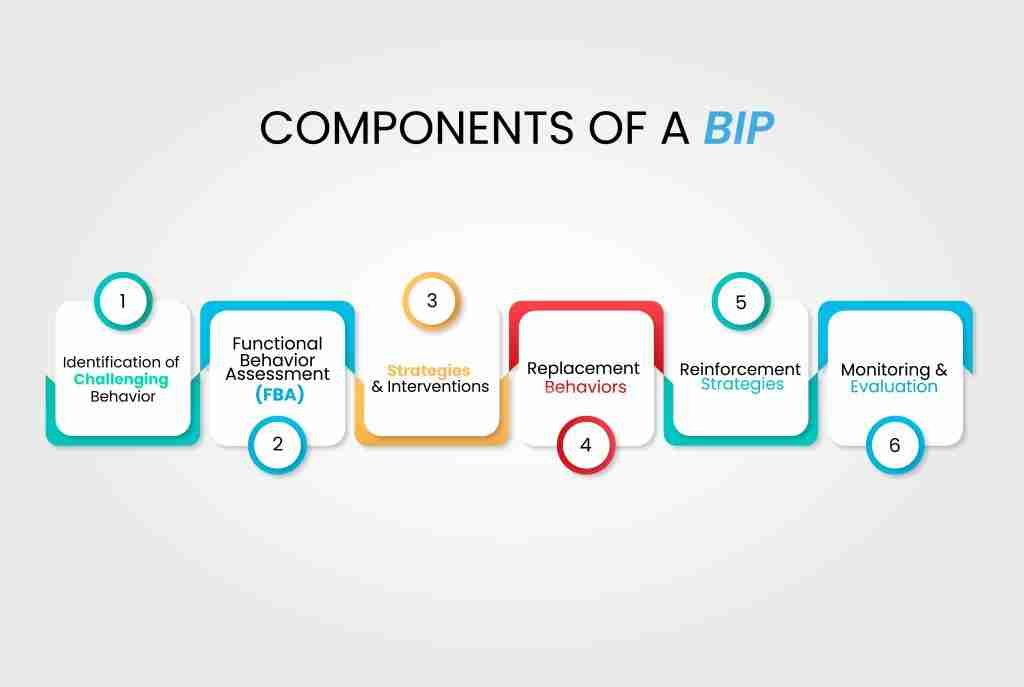The Ultimate Guide to Behavior Intervention Plans (BIPs)
ABA TherapyJuly 17, 2025

Introduction to Behavior Intervention Plans (BIPs)
Applied Behavior Analysis (ABA) therapy has been a game-changer for individuals with autism and other developmental disorders. One of the most effective teaching techniques used in ABA is Errorless Learning. This method focuses on minimizing errors during the learning process, allowing learners to experience success and build confidence from the start.
Errorless Learning has its roots in the principles of behavior analysis, and its effectiveness has been supported by numerous studies over the years. By providing immediate prompts and gradually fading them as the learner progresses, this technique helps individuals acquire new skills more efficiently and with less frustration.
Table of Contents
Components of a BIP
A well-designed BIP consists of several key components that work together to create an effective intervention strategy:

- Identification of Challenging Behavior: The first step is to clearly define the specific behavior that needs to be addressed.
- Functional Behavior Assessment (FBA): An FBA is conducted to determine the function or purpose of the challenging behavior. This assessment helps identify the antecedents, consequences, and environmental factors that contribute to the behavior.
- Strategies and Interventions: Based on the FBA results, proactive and reactive strategies are developed to address the challenging behavior. These strategies are tailored to the individual's needs and may include environmental modifications, skill-building, and behavior management techniques.
- Replacement Behaviors: Positive alternative behaviors are identified and taught to replace the challenging behavior. These replacement behaviors serve as more adaptive ways for the individual to meet their needs or express themselves.
- Reinforcement Strategies: Positive reinforcement is used to encourage and maintain desirable behaviors. This may involve the use of rewards, praise, or other incentives to motivate the individual to engage in appropriate behaviors.
- Monitoring and Evaluation: Regular data collection and progress monitoring are essential to track the effectiveness of the BIP. This information is used to make necessary adjustments to the plan and ensure that it continues to meet the individual's needs.
Steps to Developing a BIP
Creating an effective BIP involves a collaborative process that includes the individual, their family, and a multidisciplinary team of professionals. Here are the key steps to developing a BIP:
- Conduct a Functional Behavior Assessment (FBA).
- Define the target behavior and its triggers.
- Collaborate with a multidisciplinary team to develop the plan.
- Select appropriate interventions and reinforcement strategies.
- Implement the plan and ensure consistency across all settings.
- Regularly review and revise the plan based on data and observed outcomes.
Benefits of a BIP
BIPs offer numerous benefits in reducing challenging behaviors and promoting positive behavior change. By using an individualized and evidence-based approach, BIPs help individuals develop the skills and strategies needed to manage their behaviors effectively. When implemented consistently, BIPs can lead to significant improvements in academic performance, social interactions, and overall quality of life.
Common Challenges and Solutions
While BIPs are highly effective, there may be challenges in developing and implementing them. Some common challenges include:
- Lack of consistency across settings
- Resistance to change from the individual or caregivers
- Insufficient data collection or progress monitoring
To overcome these challenges, it is essential to provide training and support to all individuals involved in the BIP implementation. Regular communication and collaboration among team members can help ensure consistency and address any resistance to change.
Additionally, a strong emphasis on data collection and progress monitoring can help guide decision-making and ensure the effectiveness of the BIP.
Role of Parents and Caregivers in BIPs

Parents and caregivers play a crucial role in the success of a BIP. Their involvement in developing and implementing the plan is essential for ensuring consistency and support across all settings. By reinforcing positive behaviors at home and participating in the BIP process, parents and caregivers can contribute significantly to the individual's progress.
Ethical Considerations
When developing and implementing a BIP, it is essential to consider ethical principles to ensure that interventions are respectful, culturally sensitive, and in the best interest of the individual. This includes obtaining informed consent, respecting individual rights and preferences, and ensuring that interventions are the least restrictive yet most effective means of addressing challenging behavior.
Conclusion
Behavior Intervention Plans (BIPs) are powerful tools for managing challenging behaviors while promoting positive change in individuals' lives. By utilizing an individualized approach grounded in evidence-based practices, BIPs can lead to significant improvements in various areas such as academic performance, social skills, and overall well-being.
If you or someone you know is struggling with behavioral challenges, consider seeking professional guidance in developing a BIP tailored specifically for your needs. With appropriate support systems in place, positive change is not just possible; it’s achievable!
At Illuminate ABA, we specialize in providing comprehensive ABA therapy services designed specifically for individuals facing behavioral challenges. Our experienced professionals work closely with families to develop personalized BIPs that address unique needs effectively.
Contact us today for more information or consultation on how we can help unlock positive change for you or your loved one!
Read More: Unlocking Success: Errorless Learning in ABA Therapy
